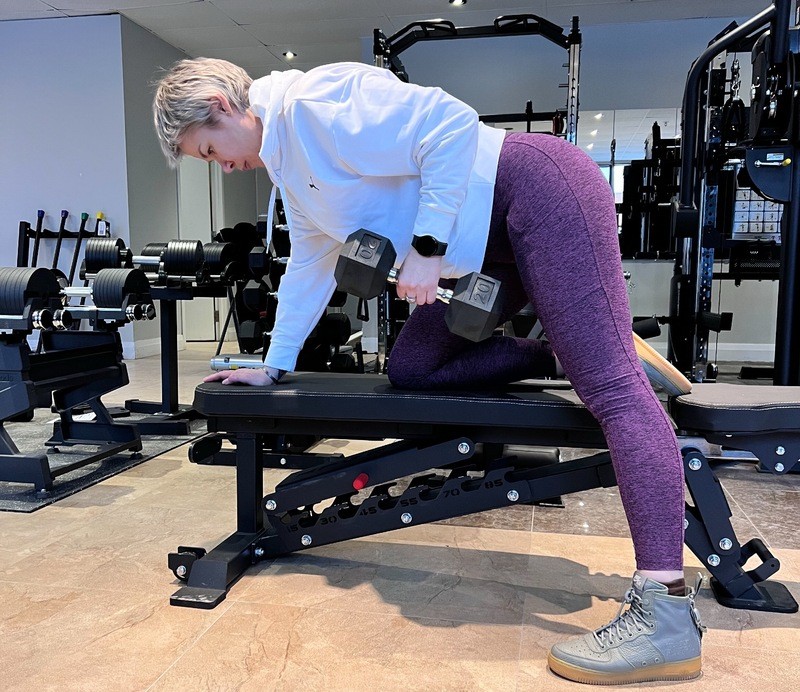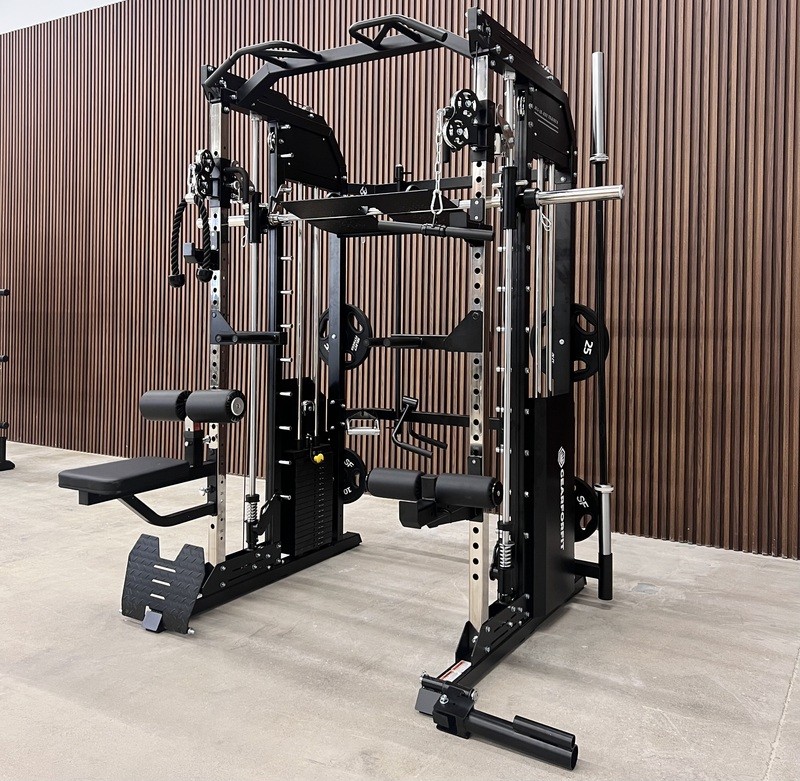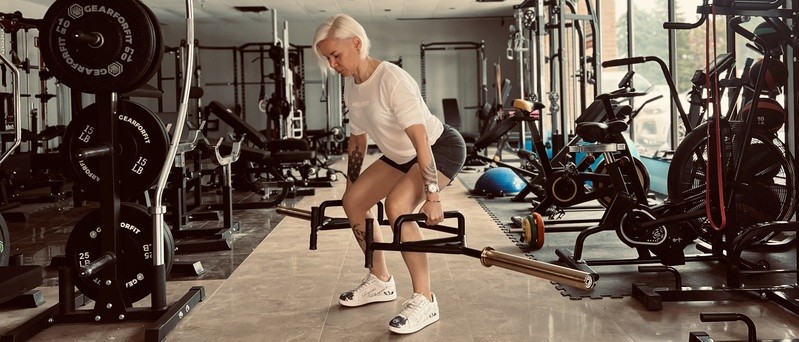blog
5 Reasons Why Your Workout Routine Isn't Delivering Desired Results
July 01, 2023

Do you feel like the hours you put in workouts are not producing the desired results? It can be a major letdown when your fitness routine doesn't give you the outcomes you were hoping for. Have no fear! There are probably several reasons why your exercise routine isn't yielding the desired effect. In this blog, we will cover the five most common reasons that might be slowing your progress.
1. Lack of Goal Setting and Tracking Progress
In order to succeed with your workout routine, it is essential to set clear goals and track your progress. Goals should be SMART, meaning specific, measurable, achievable, relevant, and time-bound. For example, instead of saying "I want to work out more," you could set a goal like "I want to exercise 4 days per week for the next month." In addition, tracking your progress is important for staying motivated and making adjustments to your workouts. This can be done using various methods such as a workout journal, progress photos, measurements, fitness apps, or wearable devices. Lastly, celebrating your achievements along the way is also important for staying motivated. Acknowledge and reward yourself for reaching milestones and making progress. This will help keep you inspired to continue working towards your goals.
2. Inconsistent or Incorrect Form
Proper form is crucial when it comes to getting the most out of your workouts. Many people underestimate the importance of correct form and end up performing exercises incorrectly, which can lead to injury and prevent you from seeing results. Whether you're lifting weights, doing bodyweight exercises, or practicing yoga, it's important to learn and practice proper form.
One common mistake people make is using momentum to complete an exercise instead of relying on the targeted muscle group. This can be seen in exercises like bicep curls, where people swing their arms to lift the weight instead of using their biceps. By using momentum, you're not effectively targeting the muscle and therefore not getting the full benefit of the exercise.
Another mistake is not engaging the correct muscles during an exercise. This often happens when people try to lift too heavy of a weight or perform an exercise that is too advanced for their current fitness level. It's important to start with lighter weights and gradually increase the load as your strength improves. This will ensure that you're engaging the correct muscles and avoiding unnecessary strain on other parts of your body.
To ensure you're using proper form, it's important to learn the correct technique for each exercise. This can be done through research, watching instructional videos, or working with a personal trainer. A qualified trainer can assess your form and provide feedback and guidance to help you improve. By focusing on proper form, you'll not only reduce your risk of injury but also maximize the effectiveness of your workouts.
3. Not enough time for rest and recovery
When it comes to fitness, many people mistakenly think that more exercise is always the best choice. However, rest and recovery are just as vital as exercise in terms of achieving results. If your body is not given a chance to restore and rebuild, it can lead to fatigue, poor performance, and even injury. A typical mistake that a lot of people make is not having enough rest days. Your body needs time to recover and restore energy, especially after intense workouts. Too much exercise can lead to a decrease in strength and endurance and can suppress your immune system. It is critical to pay attention to your body and provide it with the rest it needs to prevent burnout. Another area of recovery that is often disregarded is sleep. Sleep plays a major role in muscle growth and repair, hormone regulation, and overall well-being. Insufficient sleep increases cortisol levels, which can inhibit your progress and make weight loss more difficult. Attempt to get 7-9 hours of quality sleep each night to optimize your recovery and maximize your results. Keep in mind, fitness is a journey, and recovery is a crucial component of that journey.
4. Inadequate Nutrition and Hydration
Getting the Right Nutrition and Hydration is Vital When exercising, it is essential to supply your body with the right nutrients and water to achieve optimal performance. Failing to consume the right macronutrients and hydrate can result in a decrease in energy, muscle cramps, and a lack of progress. A common mistake is not eating enough calories to support the intensity of the workout. When you exercise, your body needs calories for energy and if insufficient calories are consumed, it will turn to stored energy sources, like muscle, which can lead to a decrease in performance. A balanced diet, with enough calories to support your activity level, is necessary. Protein is essential for muscle repair and growth, so make sure you get enough. Carbohydrates give the energy required to fuel your workouts, so incorporate complex carbohydrates like fruits, vegetables, and whole grains into your meals. Healthy fats are also important for hormone production and overall health, for example, avocados, nuts, and olive oil. Hydration is another essential component of nutrition that is often neglected. When you exercise, you sweat and thus lose water, so it is important to stay hydrated before, during, and after your workouts. You should drink at least 8 cups of water daily and, if participating in intense or prolonged exercise, adding electrolytes to your water can replace what you lose. By ensuring you are getting the proper nutrition and hydration, your body will have the energy and resources to perform at its peak. Remember, food is not only fuel but also the blocks for muscle repair and growth.
5. Overtraining
While it's important to challenge yourself and push your limits, there is such a thing as too much of a good thing. Overtraining occurs when you push your body beyond its ability to recover, leading to a decrease in performance and an increased risk of injury. Overtraining can also lead to symptoms like fatigue, irritability, and decreased immune function.
Your body needs time to recover and repair after intense workouts. If you're constantly pushing yourself without allowing for proper rest, you'll eventually hit a plateau and may even experience a decline in performance.
Another aspect of overtraining is not listening to your body's signals. Pushing through pain or ignoring signs of fatigue can lead to injury and setbacks. It's important to recognize when your body needs a break and give it the rest it needs. This may mean taking a day off from the gym or incorporating active recovery activities like yoga or light cardio.
To avoid overtraining, it's important to find a balance between challenging yourself and allowing for proper rest and recovery. By finding the right balance, you'll avoid burnout and continue to make progress toward your fitness goals.
In conclusion, if you feel that you have not been making any progress with your exercise routine, don't despair. By identifying and addressing the common mistakes that may be hindering your progress, you can make the necessary adjustments to achieve the results you've been dreaming of. From avoiding common workout mistakes to prioritizing proper rest, nutrition, and hydration, there are several factors to consider when it comes to improving your workout routine. By seeking professional guidance, setting clear goals, and tracking your progress, you'll be well on your way to reaching your fitness goals. Remember, fitness is a journey, and with the right mindset and approach, you can overcome any obstacles and achieve the results you desire. So, don't give up, keep pushing, and watch as your workout starts working for you.





